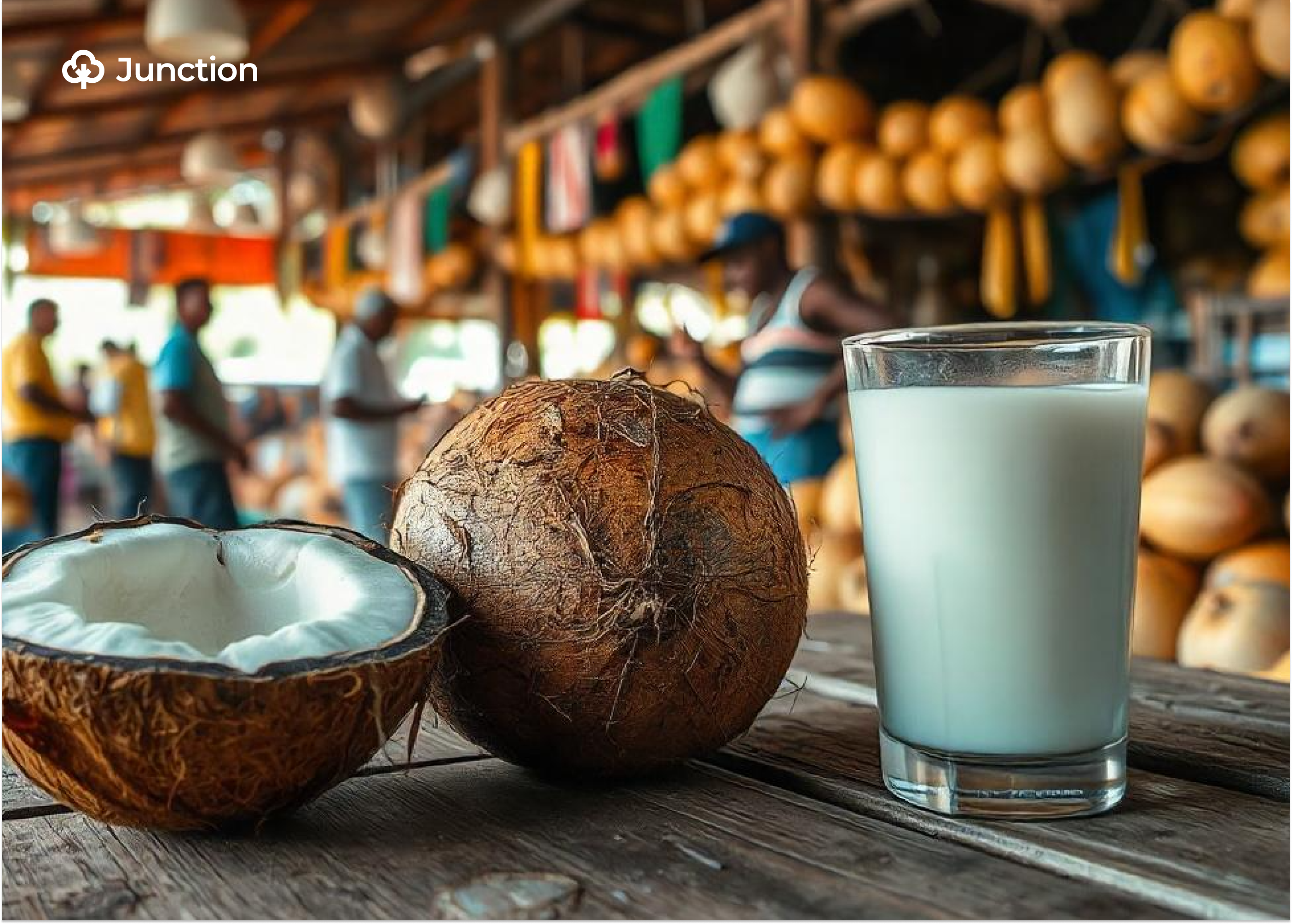News in brief:
– Lagos State is supporting farmers to enter the booming $102 million global coconut yoghurt market through strategic investments.
– The government is enhancing coconut cultivation, providing training, and funding a five-year value chain upgrade plan.
The Lagos State Government has reaffirmed its commitment to supporting farmers in tapping into the rapidly growing global coconut yoghurt market, currently valued at $102.01 million and projected to reach $302.32 million by 2031.
Speaking with The Nation, the Commissioner for Agriculture and Food Systems, Abisola Olusanya, emphasised the government’s dedication to boosting coconut production in the state. She noted that the rising demand for coconut yoghurt —driven by its thick texture, higher protein content, and appeal to health-conscious consumers— presents a lucrative opportunity for local farmers.
Lagos pushes for increased coconut cultivation
The coconut yoghurt industry is a fast-expanding segment of the plant-based dairy alternatives market. Consumers increasingly seek dairy-free and lactose-free products, fueling the demand for this commodity. With its nutritional benefits and alignment with evolving dietary trends, it has become a preferred choice for individuals prioritising muscle recovery and overall health.
To capitalise on this market opportunity, the Lagos State Coconut Development Authority has initiated a statewide coconut tree planting program across housing estates. Olusanya stated that the initiative aims to enhance coconut production and position Lagos as a major supplier in the global coconut yoghurt value chain.
“The state government is ensuring that farmers have access to high-quality coconut planting materials,” she said. “We are determined to reclaim Lagos’ position as a leading producer of high-quality coconuts.”
Government investments and training
The Lagos government is also investing in capacity-building programs for coconut farmers. Through training on Good Agricultural Practices (GAP), farmers are being equipped with modern, sustainable techniques to improve productivity.
As part of its broader coconut industry development strategy, the state government last year released ₦250 million to implement a five-year Coconut Value Chain Upgrade Strategy. This initiative, supported by the Food and Agriculture Organization (FAO) of the United Nations, seeks to enhance the economic, social, and environmental sustainability of the coconut sector.
The five-year strategy was developed using the United Nations Agri-Food Systems Transformation Accelerator (ASTA), with a funding allocation of $4 million. Olusanya expressed optimism that the government’s efforts will not only boost local coconut farming but also strengthen Lagos’ footprint in the international coconut yoghurt market.
Nigeria’s federal government had also announced plans to significantly increase coconut production in the country to reach 500,000 metric tonnes (MT) by 2025, up from the current 224,186 MT.



